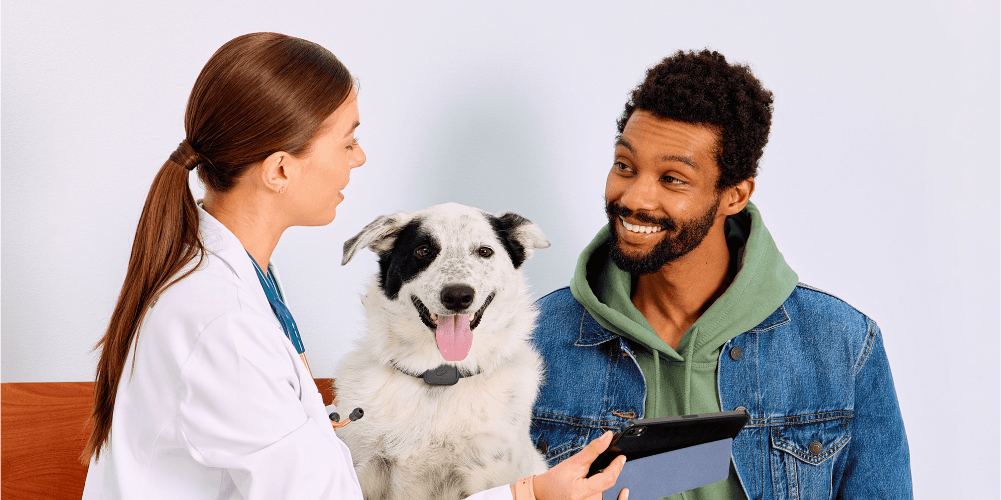5 reasons for twice-yearly health checks, from a Vet

Dr. Joanna Gale, BVetMed CertLAS MRCVS, shares her thoughts on bi-annual checkups for your pet.
First on every new pet parent’s list is a trip to the vet. Throughout those early months, puppies and kittens see the doctor numerous times, getting their first shots, being spayed or neutered, receiving full checkups for any health problems. For those not used to having a pet, this period can be a helpful transition. Frequent communication with the vet goes a long way to reassuring new parents that they are doing everything correctly.
But once parents get comfortable having a pet and get into an easy rhythm of daily life with them, the vet visits tend to drop off in frequency. This is where health problems can begin. What many pet parents don’t realize is that even if your pet shows no signs of distress, it’s still important to make – and keep – regular vet appointments. Your furry friend may seem full of vim and vigor, but regular health checks will gauge their true health. “Wellness checkups” are an essential part of a pet’s year, just as they are with their human counterparts.
Here are 5 great reasons you need to get your pet to the vet every 6 months.
- By getting up close and personal with your pet, your veterinarian will be able to spot small changes you haven’t noticed, such as early indicators of certain conditions or diseases that can be prevented.
- Each appointment includes a complete physical exam, including a close look at the eyes, ears, nose and mouth. Scrutinizing these all-important body parts can reveal critical information that is not always obvious from a quick glance.
- It’s not just visible changes which can sound alarm bells. Your veterinarian will feel along your pet’s body – it’s called “palpation” – to check for any signs of external or internal issues.
- If vaccinations are due, your vet can administer them during the visit and give you expert advice on how to keep fleas, ticks, and other pesky parasites under control.
- If you have any questions about your pet, including on how to best care for them, this is a great opportunity to get answers. Be sure to bring a summary of your pet’s Whistle weekly health reports if you are seeing any changes in behavior such as scratching or licking. Your vet will value the insight.

If nothing troublesome is discovered during the exam, you might feel like the visit hasn’t been fruitful, but in truth this gives you every reason to celebrate! A clean bill of health is the best news you can get. Further, regularly examining your pets when they are healthy enables your veterinarian to treat them more appropriately and specifically if and when they become unwell. Knowing what’s normal for an individual animal helps doctors more quickly identify when something has gone wrong.
Pro tip: Use your Whistle app to keep track of your vet visits. Go to Reminders and enter the date and time of the appointment. You’ll get notifications on your phone as the date of the visit approaches.
Keeping regular vet appointments twice a year will give you a solid base of knowledge that lets you enjoy the other 363 days of the year worry-free. When you know that your pet’s health is getting the attention it deserves, you’re free to focus on the fun stuff – like healthy treats, fun frisbees, and…squirrels!
Joanna Gale qualified as a veterinarian from the Royal Veterinary College, London in 2002. After several years in practice she worked for six years in the pharmaceutical industry before joining Mars Petcare in Science Communications in 2012. Dr. Jo’s non-human family includes a dog, 4 horses and 7 chickens.








